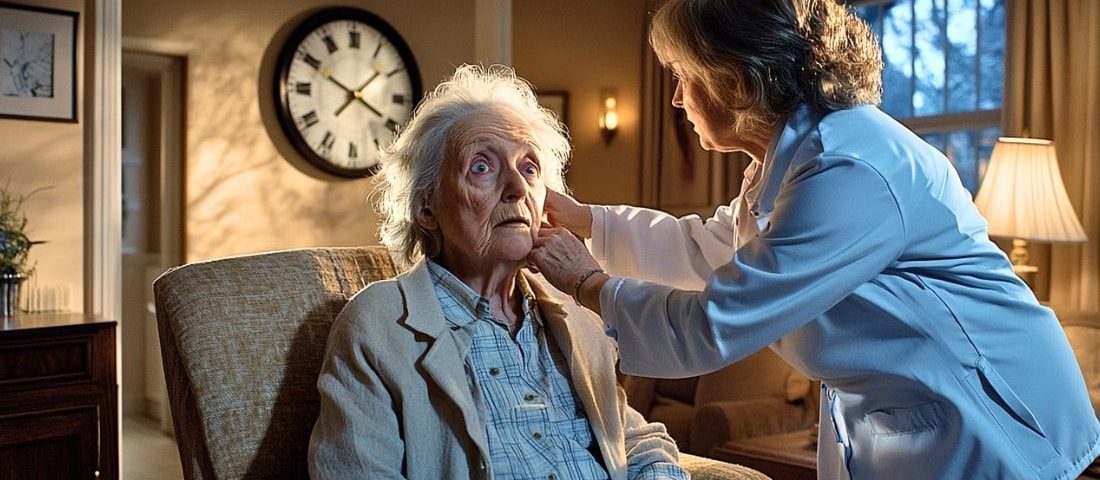
Dementia can impact an individual’s life in many ways. It may also come with various behavioral changes. One common issue is sundown syndrome. The term refers to behaviors that individuals with dementia experience late in the afternoon and evening. This post will explore sundown syndrome in dementia.
Understanding Sundown Syndrome in Dementia
Sundowning isn’t a disease but a group of symptoms that tend to appear later in the day. Individuals affected by sundown syndrome may show signs of restlessness, agitation, confusion, or even hallucinations. These behaviors can disrupt their sleep and lead to exhaustion, which only worsens the problem.
Recognizing these patterns helps us manage them more effectively. A person who seems calm and engaged in the morning may become irritable or anxious in the evening. They might start wandering, struggle to recognize familiar surroundings, or express distress without a clear cause. Understanding sundown syndrome can help us approach the situation with patience and compassion.
Why Does Sundowning Happen?
The exact cause of sundowning remains unclear, but experts believe it’s linked to changes in the brain caused by dementia. One major factor is the disruption of the body’s internal clock. Dementia affects the brain’s ability to distinguish between day and night, leading to increased confusion as evening approaches. It explains why many people with sundown syndrome have trouble falling or staying asleep.
Lighting and environment also play a role. As daylight fades, shadows appear, and familiar spaces can look unfamiliar or frightening. It can trigger anxiety and confusion, making your loved ones feel lost or unsettled. Fatigue is another contributing factor. Their brain may struggle to process information, increasing frustration and disorientation.
Unmet physical needs can also worsen sundowning. Hunger, dehydration, pain, or bathroom use may cause more discomfort. When people can’t communicate their needs effectively, this often manifests as agitation or restlessness.
How to Manage Sundowning
While sundowning can be challenging, several strategies can ease symptoms and create a calmer evening.
Maintaining regular meal times, activities, and bedtimes provides stability for people with dementia. Unexpected changes in their schedule can lead to frustration and make sundowning worse.
Maximizing exposure to natural light during the day can also help regulate their sleep-wake cycle. Encouraging outdoor time or keeping the curtains open during daylight hours can support their internal clock. Use soft, warm lighting in the evening to create a calm atmosphere and minimize shadows.
A peaceful environment plays a key role in preventing sundowning episodes. Reduce noise, dim lights, and minimize distractions in the evening. A clutter-free space with familiar objects can help them feel more at ease.
Soothing activities in the late afternoon and evening can also make a difference. Playing soft music, reading a familiar book, or offering a gentle hand massage can promote relaxation. Some people find comfort in repetitive tasks, like folding laundry or sorting objects. These simple actions can provide a sense of purpose and security.
It’s also important to be mindful of diet. Caffeine and sugar, especially in the late afternoon, can worsen restlessness and sleep problems. A balanced dinner with plenty of hydration throughout the day can help prevent nighttime discomfort and wakefulness.
Checking for unmet needs is another crucial step. If our loved one is hungry, thirsty, or in pain, addressing these issues can prevent agitation from escalating. Sometimes, simply sitting with them, offering reassurance, or engaging them in light conversation can ease their distress.
Support for Seniors with Sundown Syndrome
Effective caregiving strategies can make a big difference in managing sundowning behaviors. Working with a senior living community specializing in dementia care can help create a more supportive setting.
Innovative, Experienced, and Trusted Senior Living Community
Do you have a loved one needing memory care services? At Bethel Gardens, we offer compassionate care to seniors with dementia. Reach out now to learn more about our services and amenities.



